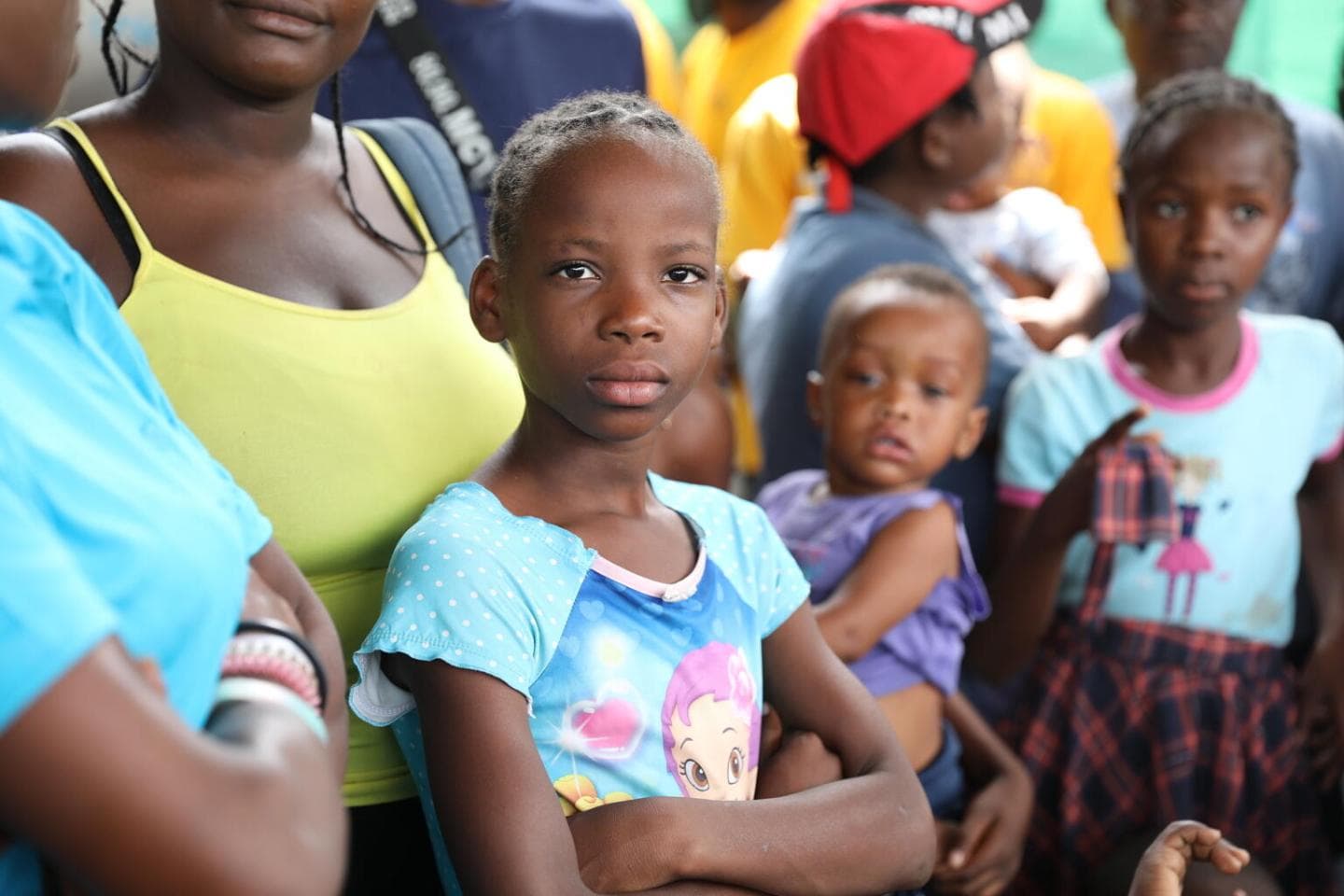We're loading the full news article for you. This includes the article content, images, author information, and related articles.
A new UNICEF report reveals a near doubling of children displaced by violence in Haiti, highlighting a severe humanitarian crisis that impacts Kenya's ongoing security mission in the Caribbean nation.

The number of children displaced by escalating violence in Haiti has nearly doubled over the past year, reaching approximately 680,000, according to a recent UNICEF Child Alert report released on Wednesday, October 8, 2025. This alarming increase underscores a deepening humanitarian crisis in the Caribbean nation, where minors face heightened risks of hunger, violence, and forced recruitment by armed groups.
Overall, an estimated 6 million Haitians, representing half of the country's population, are in urgent need of humanitarian assistance, with over 3.3 million of them being children. The report warns that without decisive action, the future of an entire generation in Haiti is at stake.
Haiti has been grappling with profound political instability, economic inequality, and the devastating effects of natural disasters for decades. The assassination of President Jovenel Moïse in 2021 triggered a significant power vacuum, leading to a sharp escalation in armed violence. Since then, armed groups have expanded their control over key areas, including neighbourhoods, ports, and national roads, paralyzing essential services and disrupting trade.
The current crisis has seen the number of displacement sites soar to 246 nationwide in the first half of 2025 alone, with many children forced to flee multiple times as violence spreads. More than 1.3 million people are displaced across the country.
In response to the deteriorating security situation, the United Nations Security Council approved a new, expanded Gang Suppression Force (GSF) to stabilize Haiti. This new operation, which replaces the Kenya-led Multinational Security Support (MSS) mission, comes with a stronger mandate, increased personnel, and broader powers to combat criminal gangs. Under UN Resolution 2793 (2025), the GSF is authorized to deploy up to 5,550 uniformed officers, including police and military personnel, alongside 50 civilian staff for a 12-month period.
The GSF's mandate includes arresting gang leaders, reclaiming key territories, and supporting Haiti's fragile police and government institutions. The UN will also establish a permanent support office in Haiti to ensure logistics and coordination for the mission.
Kenya has played a significant role in international efforts to address the Haitian crisis, leading the initial Multinational Security Support (MSS) mission since October 2023. Kenya's Ministry of Foreign Affairs welcomed the transition to the GSF, stating that it represents a decisive step toward restoring peace and stability in Haiti and reflects Kenya's leadership in mobilizing international attention.
However, the initial Kenyan deployment faced challenges, including understaffing and logistical hurdles, with fewer than 1,000 troops deployed against heavily armed militias, falling short of the targeted 2,500. Three Kenyan soldiers have been killed and several injured during the mission. Despite these challenges, Kenya's intelligence chief, Noordin Haji, and National Security Advisor Amb. Monica Juma, played pivotal roles in securing international backing for the expanded mission.
Catherine Russell, UNICEF Executive Director, emphasized the dire situation: “Children in Haiti are experiencing violence and displacement at a terrifying scale. Each time they are forced to flee, they lose not only their homes but also their chance to go to school, and simply to be children.”
The widespread displacement is compounding other crises, with over 33% of displacement sites lacking basic protection infrastructure, leaving children and women at heightened risk of violence, exploitation, and abuse. Schools often double as shelters, further disrupting education for nearly half a million students. The humanitarian appeal for children in Haiti is only 13% funded, severely limiting programs for protection, nutrition, and medical assistance.
For Kenya, the mission in Haiti carries significant risks, as evidenced by the casualties among its officers. The effectiveness of the new GSF will depend on adequate funding, international contributions, and the ability to overcome the deeply entrenched nature of Haitian gangs.
While the UN Security Council has approved the GSF, the timeline for full troop deployment remains unclear, as does the specific composition of contributing nations beyond Kenya. Past interventions in Haiti have struggled to achieve lasting stability, raising questions about the long-term impact of the current mission.
There have also been concerns regarding the legitimacy of deploying Kenyan police officers instead of military personnel, with a court case in Kenya addressing this issue.
The international community will be closely watching the deployment and operational effectiveness of the new Gang Suppression Force. Key indicators will include a reduction in gang violence, improved humanitarian access, and the ability to restore essential services and stability in Port-au-Prince and other affected areas. The level of international funding and troop contributions will be crucial for the mission's success. For Kenya, the mission's progress will continue to shape its foreign policy profile and its role as a global actor.
Kenya's commitment to international peacekeeping missions, the ongoing humanitarian crisis in Haiti, and the broader implications of gang violence on vulnerable populations.
Keep the conversation in one place—threads here stay linked to the story and in the forums.
Sign in to start a discussion
Start a conversation about this story and keep it linked here.
Other hot threads
E-sports and Gaming Community in Kenya
Active 9 months ago
The Role of Technology in Modern Agriculture (AgriTech)
Active 9 months ago
Popular Recreational Activities Across Counties
Active 9 months ago
Investing in Youth Sports Development Programs
Active 9 months ago